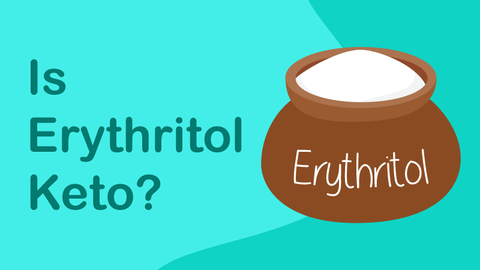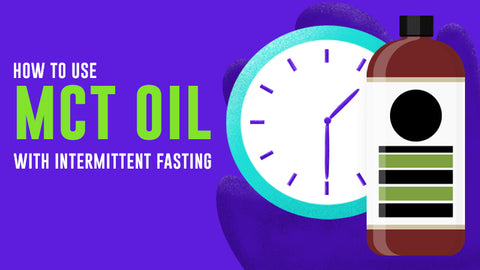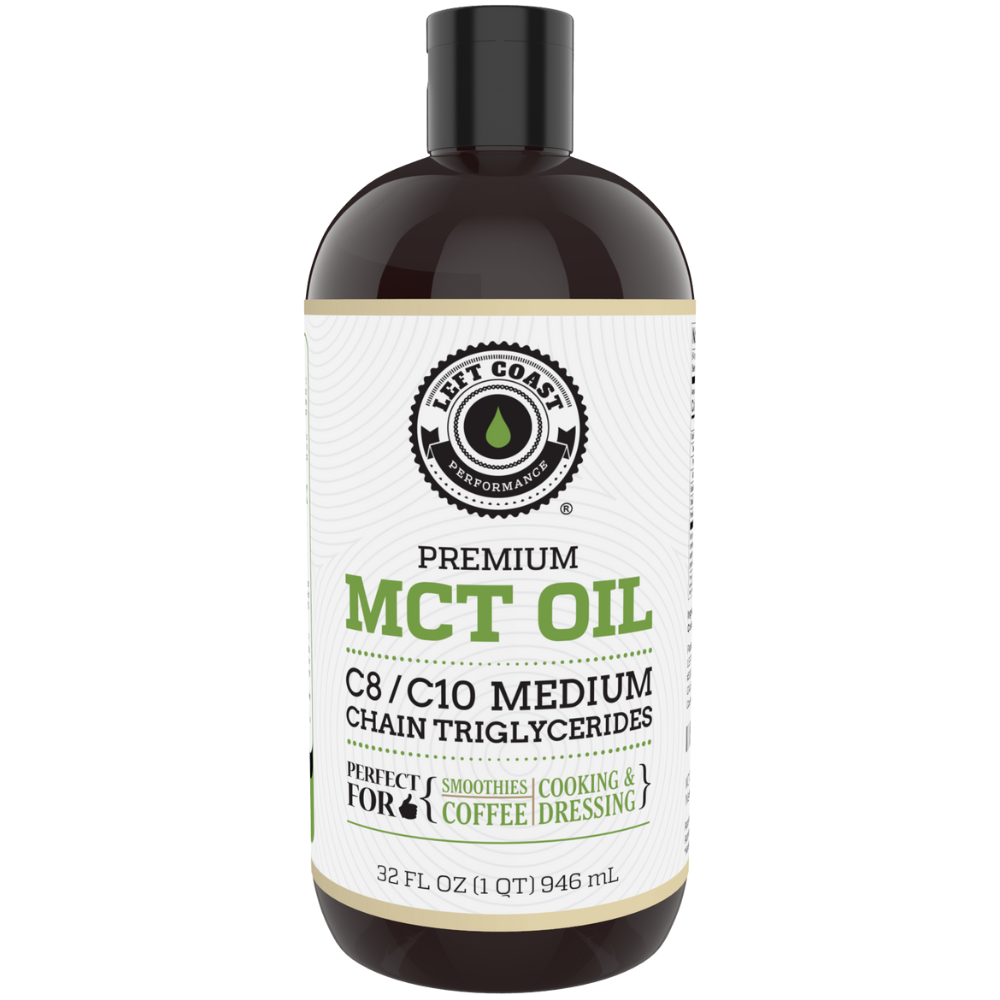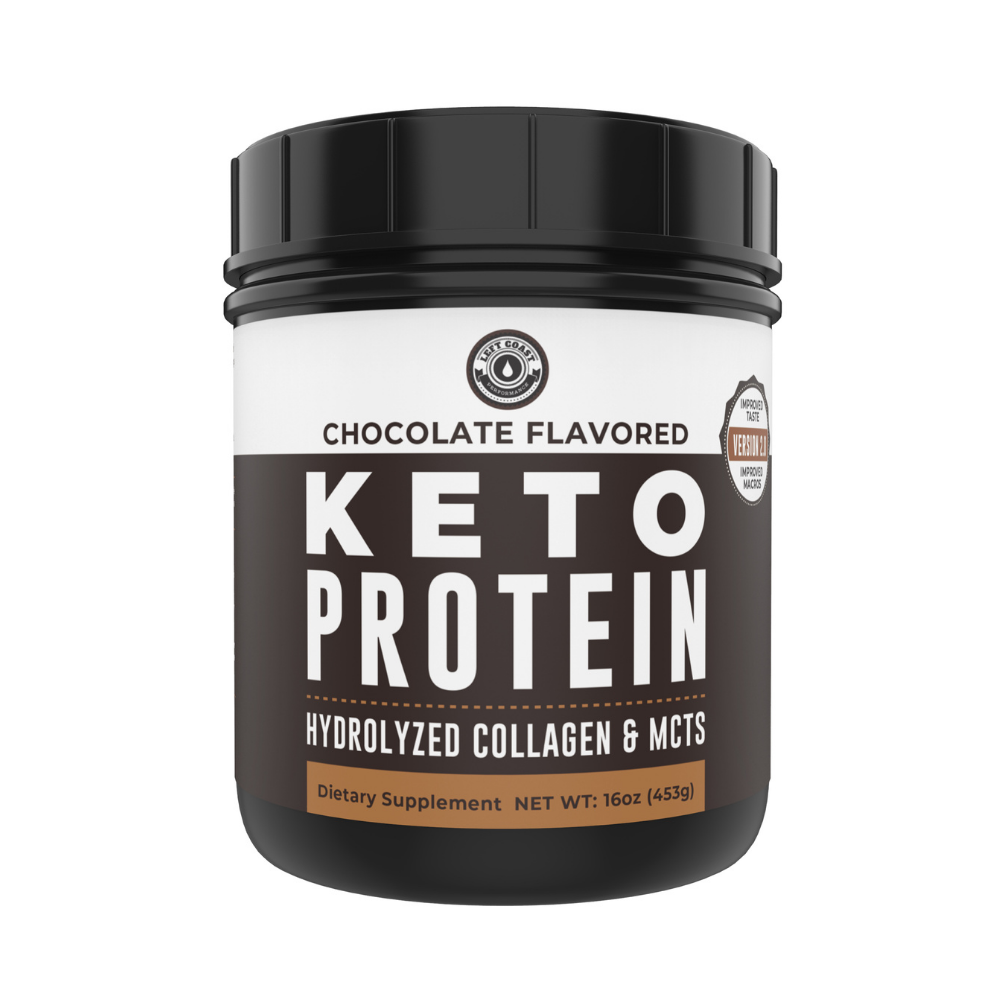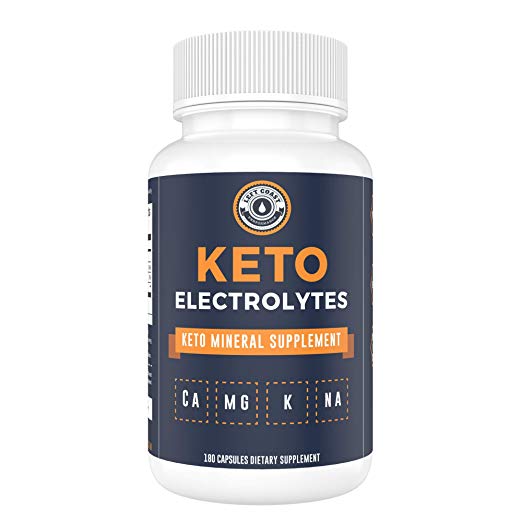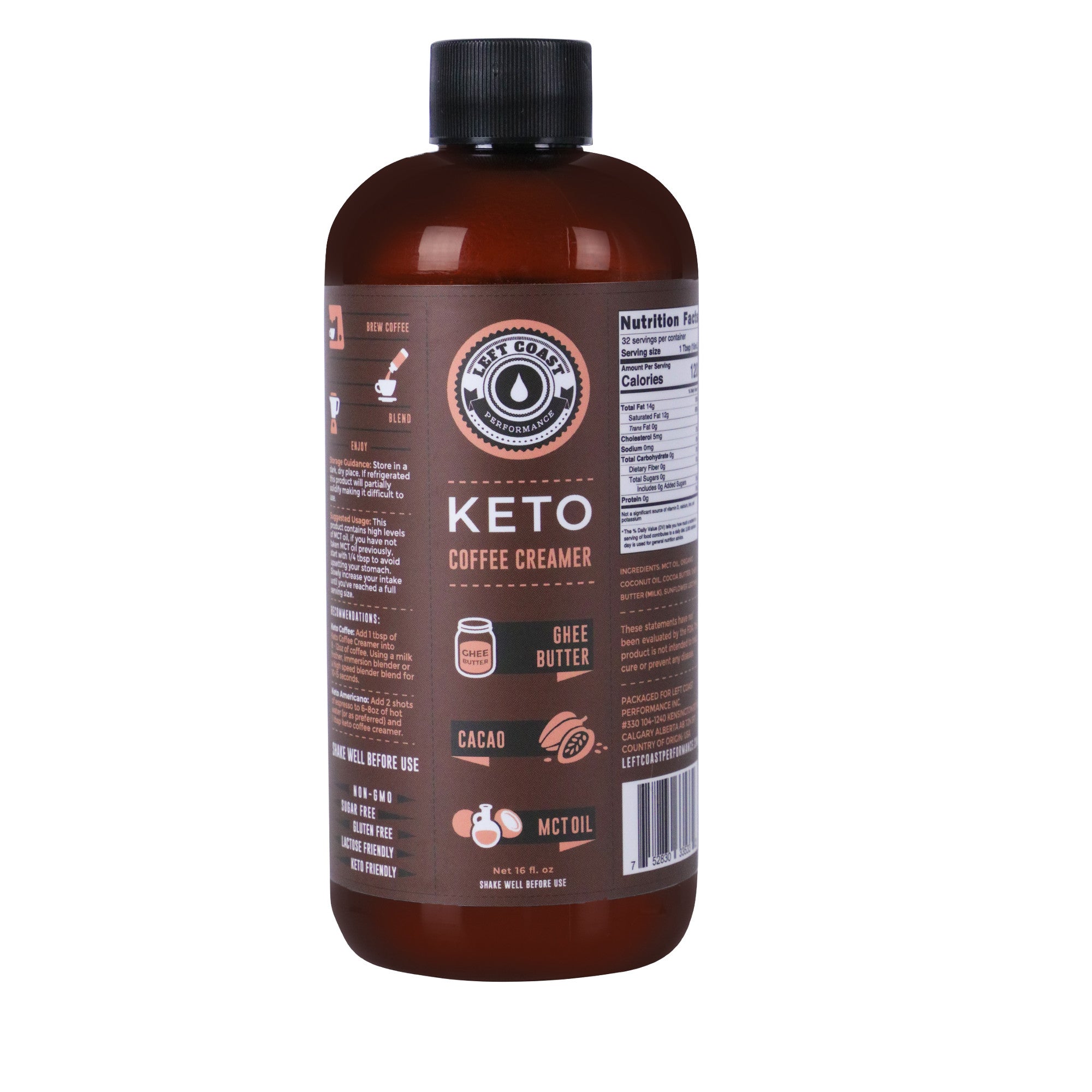How to Get Into Ketosis (And 9 Ways to Get Into Ketosis Faster)

on June 18, 2019
Ketosis isn’t simply a buzzword—it’s a way of life. In fact, it’s necessary for our survival. This wholly natural process is one that nearly every human body can take advantage of, and achieving ketosis on a regular basis has proven to come with a wide range of health benefits, including weight loss and reduced risk of chronic diseases. It even has the potential to extend your life.
What is Ketosis?
Ketosis is a metabolic state that is triggered when the body has used up its main energy source: glucose (or sugar). Once this happens, your body breaks down fat and converts it into ketones, which then takes over as your primary form of fuel.
Your body stores glucose in the form of glycogen in the liver and muscles. The only way to deplete these glycogen stores is to either not eat or drastically lower your intake of carbohydrates. There’s no hard and fast rule as to how long this will take. Getting into a ketosis state will differ by individual according to one’s age, metabolism, exercise level, and macronutrient (carb, fat, and protein) intake.
How to Get Into Ketosis
Achieving ketosis requires a diet low in carbohydrates and high in fat, with a moderate amount of protein. This means, you’ll be eating around:
- Fats: 60-80%
- Proteins: 15-30%
- Carbohydrates: 5-10%
In general, you’ll need to cut your daily net carb intake to around 20-50 grams. Net carbs can be calculated by taking a food’s total amount of carbohydrates and subtracting its fiber content. For example: one raw avocado has 11.75 grams of total carbs and 9.2 grams of total fiber. So, 11.75 - 9.2 = 2.55 grams of net carbs. Calculating net carbs encourages you to eat more fiber-rich whole foods, which can be harder to obtain on a keto or low-carb diet.
Most of the carbs you cut out will be replaced with fats. This includes foods like: avocados, olives, MCT Oil, extra virgin olive and coconut oil, grass-fed butter and full-fat dairy.
Once you’ve significantly decreased your carbs to under 50 grams, achieving ketosis can often take as little as 2-4 days, though it may take a week or longer for some people.
Being in ketosis is determined by the level of ketones in your blood. Specifically, once you’ve reached a threshold of at least 0.5 mmol/L of the ketone beta-hydroxybutyrate (BHB), your body is considered to be in ketosis.
How to Get Into Ketosis Faster
- Cut carbs. As discussed above, in order to get into Ketosis you have to cut carbs. You can't out exercise carb intake, it starts always starts here.
-
Fasting: Going without food is the surest way to ketosis, but this doesn’t mean you have to starve yourself. Intermittent fasting, which involves short-term fasts, will help deplete those glycogen stores quicker to reach ketosis, sometimes within just 24 hours.
-
Consuming Coconut and/or MCT Oil: Research suggests that fat sources containing medium-chain triglycerides (MCTs), like coconut oil, can help you reach ketosis faster and help you sustain it. In fact, one study found that a diet high in MCTs allowed for more carbohydrate intake (upwards of 20% of calories), while still remaining in ketosis.
-
Increasing Your Physical Activity: Exercising also helps deplete your glycogen stores, and it may even increase the production of ketones. Working out while fasting may get you into ketosis even faster.
Be mindful of your energy level, water in take and mineral in take. Don’t push yourself too hard, low intensity exercise is usually a better option when you're making the switch to keto. Many people initially experience fatigue and low energy as their bodies adapt from using glucose to ketones as fuel.
- Taking Exogenous Ketones: These are nutritional supplements that boost ketone levels in the blood. They also may help to induce ketosis which we’ll discuss later.
-
Take a Long Walk. This really is an extension of number 2 and number 4. If you're fasting walking is the perfect way to burn off excess glucose stores. This will help you transition to Ketosis, without overdoing it.
-
Buy a Ketone testing kit. Urine strips aren't great indicators, if you're worried about the speed in which you achieve ketosis you should really have an accurate way to measure it. This is a cheap, and effective option.
-
Drink Plenty of Water. This isn't directly going to help you get into Ketosis faster but it's going to make things a lot easier. As your insulin levels drop, you will excrete more water. Ensure you stay hydrated when transitioning to ketosis.
- Take an Electrolyte Supplement. When you're flushing out water, you'll also be flushing out vital minerals. Taking an electrolyte ketone supplement will help you stay hydrated.
Ketones Explained: Types Of Ketones
Ketones are acid by-products made by your liver when it breaks down fat—both the fat you eat and the fat already stored in your body—for energy. This process is called beta-oxidation. Once ketones are produced, they are then sent into the bloodstream, taking over the job of glucose to fuel muscles and other tissues throughout the brain and body. There are three types of ketones (or ketone bodies):
-
Acetoacetate (AcAc) is the first ketone produced when fats are broken down. It then forms another type of ketone, beta-hydroxybutyrate (BHB).
-
Beta-hydroxybutyrate (BHB) is the most abundant and efficient ketone produced in the body. This is why most ketone supplements, known as exogenous ketones, are made with BHB
- Acetone is a byproduct of AcAc, and it can cause a fruity smell on your breath when your body is in ketosis.
How to Track Ketones
To check that your body is in ketosis, you can measure ketone levels in your urine, breath, and blood.
Ketone urine strips are the cheapest and easiest to use, but also the least accurate because its measuring the ketones that your body is getting rid of, not using.
A breathalyzer, which detects acetone levels in your breath, is slightly more reliable.
However, the best tool for tracking your ketone levels is a blood ketone meter, which tests for blood levels of BHB. You can pick one up off amazon for $30.
Signs You Are in Ketosis
Aside from tracking ketones, you can also gauge how you are feeling to determine whether or not your body is in ketosis.
Some people may experience the “keto flu”, which can last for just a few days or up to a few weeks. This typically includes a group of symptoms, including headache, nausea, fatigue, insomnia, irritability, and constipation. Making sure you stay hydrated and consuming plenty of electrolytes can help remedy these symptoms quicker.
Other typical signs and symptoms to watch out for, include:
- Increased thirst and more frequent urination
- “Keto breath” or fruity smelling breath
- Dry mouth
- Decrease in appetite
- Weight loss
- Initial weakness and fatigue (this should eventually subside)
- Initial sleep disruptions (this should also subside)
- Increased energy, mental clarity, and focus
What Are Exogenous Ketones?
Endogenous ketones are produced internally in your liver, while exogenous ketones can be taken externally as a nutritional supplement. Exogenous ketones contain BHB since it’s the most efficient and abundant in the human body, and because AcAc is not chemically stable enough to be used. Supplements are available in two main forms:
- Ketone salts: The most common type of exogenous ketones on the market, these contain BHB that is bound to a salt, like sodium, potassium, or calcium.
- Ketone esters: These ketones are combined with alcohol and are most often used in research.
Research has shown that exogenous ketones will increase blood ketone levels—almost immediately—and help induce ketosis. This may be especially effective for those who want to reap the benefits of ketosis without necessarily following a strict keto diet.
Benefits of Ketosis
There’s a growing amount of research focused on the potential benefits of keto and low-carb diets, and many of the results are promising. Maintaining a steady state of ketosis can suppress the appetite, lead to weight loss, reverse diabetes symptoms, boost brain function, and even potentially improve the lives of those with Alzheimer’s disease, Parkinson’s disease, Multiple Sclerosis (MS), and cancer. Let’s dig more into the research.
Weight Loss
Weight loss from ketosis is caused by a few different mechanisms. First, many people following a ketogenic diet will ultimately eat fewer calories. Fats and proteins are far more filling and satisfying than carbohydrates, so you may simply eat less.
However, there’s likely more to it than the “calories in, calories out” theory. In fact, numerous studies have found that a low-carb keto diet results in more weight loss than other diets, even when the calorie intake is comparable. Just see this one, which found that people on a keto diet lost 2.2 times more weight than those on a low-calorie, low-fat diet.
Part of this may be attributed to appetite suppression. Being in ketosis can affect the hormones related to hunger and satiety, which means you may notice a decrease in appetite. This meta-analysis of various studies concluded that ketosis appears to be the main reason people feel less hungry and more satisfied when on a ketogenic diet.
Meanwhile, this study found that people on a ketogenic diet for 8 weeks lost an average of 13% of their body weight. On top of that, those who remained in ketosis after the 8 weeks had lower levels of ghrelin (the “hunger hormone”) versus participants no longer in ketosis. One more study tested the use of exogenous ketones and found that they also helped suppress appetite by lowering ghrelin levels in participants.
Even more so, ketosis can also lead to greater fat loss by increasing the amount of fat you burn, whether you’re working out or simply relaxing on the couch.
Decreased Blood Sugar and Reversal of Diabetes
Unlike glucose, ketones do not cause blood sugar level fluctuations. This is significant for those with high blood sugar or anyone diagnosed with pre-diabetes, diabetes, or metabolic syndrome.
In this study of 28 patients with type 2 diabetes, a keto diet improved glycemic control—so much so that the majority of participants were able to discontinue or greatly reduce their use of diabetes medications.
Ketogenic diets are also associated with low insulin levels and improved insulin sensitivity, which can greatly improve symptoms of type 2 diabetes as well.
Potential Improvements in Alzheimer’s, Parkinson’s, Multiple Sclerosis, and Cancer
Ketones, particularly BHB, can help reduce inflammation and oxidative stress, both of which are associated with chronic conditions like diabetes and cardiovascular disease, as well as Alzheimer’s, Parkinson’s, Multiple Sclerosis (MS), and cancer.
Early research on ketosis and Alzheimer’s is encouraging, including this study that reported significant improvements in memory, language, and attention for Alzheimer’s patients who followed a strict keto diet for four months. There may also be good reason for eating more coconut oil, as its fats may play a potential role in preventing and treating Alzheimer’s.
These findings could be related to ketosis’ role in stabilizing blood sugar. Some researchers have referred to Alzheimer’s as “type 3 diabetes,” and have found that balancing your blood sugar can significantly reduce your risk of Alzheimer’s.
Ketosis may also be beneficial for various neurological conditions, like Parkinson’s, as shown in this study, which reported significant improvements in motor and non-motor symptoms for those who maintained ketosis for eight weeks. There are also a few preliminary studies that show a ketogenic diet could improve the quality of life in those with MS.
On an even larger scale, keto diets could play a major role in cancer therapy. Research has shown that ketosis has the potential to reduce tumor growth, enhance the effectiveness of chemotherapy, and improve mood and sleep in patients with advanced cancer.
Longevity
As of now, the greatest anti-aging tool most scientists can agree on is calorie restriction, but achieving ketosis could be just as powerful.
Along with reducing the overall risk of aging-related diseases like Alzheimer’s and Parkinson’s and other chronic diseases by balancing blood sugar, lowering cholesterol, and dropping excess weight, ketosis is working at the cellular level to optimize the body’s most vital functions by supporting mitochondria.
Mitochondria are the power sources found in every cell in the human body, and their health is directly related to your overall well-being. In a state of ketosis, mitochondria produce fewer free radicals and more antioxidants. Ketosis can also increase the number of mitochondria in the hippocampus, which may be be beneficial to brain function.
Overall, the wide-ranging benefits of ketosis certainly seem to support a healthy body and brain that could very well defy aging.
Safety of Ketosis
The good news is, ketosis is generally safe for most people. As your body adapts to using ketones instead of glucose as fuel, you will likely experience some of those initial side effects mentioned earlier, like the “keto flu,” but any uncomfortable symptoms should subside.
That said, the long-term health implications are still not well known since research remains limited, but some longer term side effects may include hypoproteinemia (low levels of protein), kidney stones, and vitamin and mineral deficiencies.
However, these can likely be avoided with a well-balanced diet consisting of mostly whole foods and plenty of liquids and electrolytes.
Who May Need to Avoid Ketosis
It’s important not to confuse ketosis with ketoacidosis, which is a life-threatening complication from type 1 diabetes (and sometimes type 2) that can be caused from an insufficient amount of insulin and dangerous concentrations of ketones in the blood. For this reason, you should consult a doctor before attempting a keto diet if you have type 1 or type 2 diabetes.
You’ll also want to seek medical advice regarding the safety of ketosis if you have any of the following conditions:
- High blood pressure
- Liver, heart, or kidney disease
- History of gastric bypass surgery
- Pregnant or breastfeeding
- Any metabolic conditions, like certain enzyme deficiencies, that can affect how the body produces and uses ketones.
How to Maintain Ketosis
Ketosis is a process that most of our bodies can thrive on, and there is an overwhelming amount of research to support this. But maintaining ketosis could be your most difficult battle, especially when you’re just getting started.
Along with following a consistent keto diet, you’ll want to make sure you’re staying hydrated and consuming electrolytes. Add in intermittent fasting, regular exercise, exogenous ketones and MCT oil, as well as plenty of good sleep, to consistently get the most physical and cognitive benefits out of ketosis—as you can see there are many.


